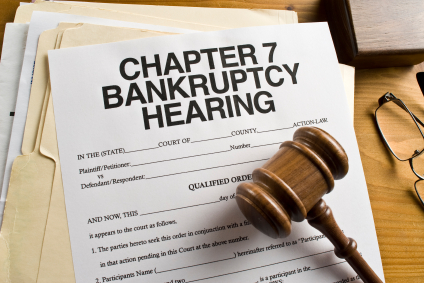Sign Up Today!
-
Latest News
- Blick Law Firm Works Closely with Tampa’s Chiropractic and Acupuncture Clinic
- Blick Law Firm Brings Legal Expertise and Christian Values to Tampa
- What can a personal injury attorney do for you?
- The Importance of a Real Estate Attorney in a New Transaction
- Over 150 New Florida Laws Take Effect this Month
- Law Change Protects Florida Patients From Balance Billing
- Fatal Alligator Attack at Disney World Orlando Could Mean Legal Trouble
- Florida Gun Laws Under Fire After Orlando Attacks
- Prospect of Medical Marijuana in Florida Creates Buzz
- Florida’s Death Penalty System Subject to Further Questioning
- Summer Driving Safety Tips
- Florida Supreme Court Votes to Maintain Reasonableness in Workers’ Compensation Law
Tags
abogado cristiano abogado de lesiones personales abogado en tampa abogados abogados en tampa abogados real estate abogados tampa accident attorney accident attorneys attorney for the defense attorneys in tampa auto accident bancarotta en tampa bankruptcy attorney blick law firm carrollwood carrollwood attorney carrollwood businesses carrollwood law firm carrollwood real estate christian attorney christian law association christian law firm christian lawyer christian lawyers christian lawyers association christian lawyer tampa driving under the influence helping the hurting michael c blickensderfer military lawyer military lawyers minute with mike personal injury personal injury attorney personal injury attorneys personal injury lawyer personal injury lawyers real estate law tampa attorney tampa law firm tampa personal injury attorney tampa real estate attorney veterans veterans lawyer
Tag Archives: abogados en tampa
What is Bankruptcy?!
 Bankruptcy is a complex area of law and involves many considerations, including whether to file, determining which type of Bankruptcy to file, the use of exemptions, understanding the protections of the Bankruptcy Code and using them to your advantage.
Bankruptcy is a complex area of law and involves many considerations, including whether to file, determining which type of Bankruptcy to file, the use of exemptions, understanding the protections of the Bankruptcy Code and using them to your advantage.
Available Bankruptcy claim types vary depending on your particular position, and understanding the differences is important.
Chapter 7 Bankruptcy is a liquidation proceeding whereby the debtor turns over all non-exempt property to the bankruptcy trustee who then converts it to cash to pay off the creditors. Usually, within four months the debtor then receives a discharge of all dischargeable debts. These dischargeable debts include your credit card debt, old medical bills, utilities bills, unsecured loans, pay day loans, and most other types of unsecured debt.
Chapter 7 Bankruptcy is generally available when the debtor has little property aside from the basic necessities like furniture and clothing; and the debtor has difficulty making payments on basic expenses, or has very little money left after doing so.
The advantage to filing Chapter 7 Bankruptcy is that your unsecured debt is completely eliminated, the process is fairly quick, and the automatic stay that takes place after filing prohibits creditors from making collection efforts.
Chapter 13 Bankruptcy is more of a reorganization process that is available to debtors who have significant equity in a home or other property and want to keep it, or maintain a regular income but simply can’t keep up with the scheduled payments on their debts. Chapter 13 Bankruptcy allows the debtor to restructure the debt to have it paid off over a period of three to five years.
The advantage to filing Chapter 13 Bankruptcy is that you can maintain your property while spreading out the payments, you will have three to five years to catch up on delinquent accounts, and during that time you will make only one monthly payment to the bankruptcy trustee for payment to all creditors involved.
No matter what your situation is, obtaining quality legal consultation from an experienced bankruptcy attorney is beneficial. Contact Blick Law Firm today at (813) 931-0840. Schedule a free 15 minute consultation with attorney Michael Blickensderfer to assess what option is best for you. Think quick, call Blick!
Posted in Bankruptcy, Blog
Tagged abogados, abogados en tampa, abogados tampa, attorney tampa florida, bankruptcy attorney, bankruptcy attorneys tampa, bankruptcy chapter 7, bankruptcy consultation, bankruptcy law firm, bankruptcy laws, bankruptcy lawyers, bankruptcy tampa fl, blick law firm, carrollwood attorney, carrollwood lawyer, chapter 13 bankruptcy, chapter 7 bankruptcy, christian attorney, christian law firm, christian legal counsel, filing for bankruptcy, law firms tampa bankruptcy attorneys, lawyers in tampa, lawyers tampa, michael c blickensderfer, military lawyer tampa, tampa attorney
Leave a comment
Bankruptcy: Advantages and Alternatives
Bankruptcy is a complex area of law and involves many considerations, including whether to file, determining which type of Bankruptcy to file, the use of exemptions, understanding the protections of the Bankruptcy Code and using them to your advantage.
Many people utilize bankruptcy as a strategy for resolving unmanageable debt. Today, it is more common than most realize and can be a refreshing solution to a debt-ridden life.
Advantages and alternatives to consider:
Elimination of Debt: The main advantage to filing for bankruptcy is the discharge of most debt. The discharge totally eliminates the obligation to pay many types of debt including your credit card debt, old medical bills, utilities bills, unsecured loans, pay day loans, and most other types of unsecured debt. ***Note: Certain types of debt cannot be avoided by filing for bankruptcy including Student Loans, Child Support and Alimony Payments, Court Fines, DUI judgments against the debtor, and debts incurred by Fraud.
Avoid Creditor Harassment: Once a debtor files for bankruptcy, there is an automatic stay on the collection of debt and most creditors must terminate their collection efforts immediately. The stay is an automatic court order that prohibits all sorts of collection attempts by creditors, and postpones most actions against the debtor, including repossessions, garnishments or attachments, utility shutoffs, foreclosures, and evictions.
Get a Fresh Start: You will be able to pay the things that are important to you, and begin rebuilding your credit in peace!
Alternatives to Consider: Bankruptcy is not the only method of dealing with insurmountable debt, and other methods may be more advantageous for your particular situation. Such alternatives may include an out-of-court settlement with creditors, reduction of payments to creditors, consolidation of debts, or payment of debts by sale of assets or borrowing on assets. However, the availability of these methods varies depending on the severity of your financial difficulties, and also requires cooperation from creditors.
If you are having trouble meeting your debt obligations, consult an experienced Tampa Bankruptcy attorney to discuss your options.
Call Blick Law Firm today at 813-931-0840. Make an appointment for a free 15 minute consultation with Michael Blickensderfer to see if Bankruptcy is right for you.
Posted in Bankruptcy, Blog
Tagged abogados, abogados en tampa, abogados tampa, attorney tampa florida, bankruptcy attorneys tampa, bankruptcy consultation, bankruptcy law firm, bankruptcy tampa fl, blick law firm, carrollwood attorney, carrollwood lawyer, christian attorney, christian law firm, christian legal counsel, divorce attorney tampa, do it yourself bankruptcy, injury lawyer tampa, law firms tampa bankruptcy attorneys, lawyers in tampa, lawyers tampa, marine attorney, michael c blickensderfer, military lawyer tampa, personal injury, tampa attorney
Leave a comment
Bankruptcy Joint vs. Separate Filing
 When married couples consider Chapter 7 or 13 Bankruptcy, they are faced with the choice of determining whether to file jointly or individually. This determination is important, and many concerns should be addressed prior to deciding what to do.
When married couples consider Chapter 7 or 13 Bankruptcy, they are faced with the choice of determining whether to file jointly or individually. This determination is important, and many concerns should be addressed prior to deciding what to do.
Many times, one spouse may have debts alone and deem it necessary to file a bankruptcy separate from the other spouse. However, in cases where both spouses are facing financial hardship in meeting the payments on their debt it can be advantageous to file Bankruptcy jointly. Advantages to filing jointly include:
- Paying only one filing fee instead of paying the same fee twice for separate filings;
- Assistance from the other spouse in gathering all the necessary documentation together, which can be extremely burdensome; and
- Filing jointly is more efficient by consolidating the filing, making it is less time consuming.
Joint filing can have disadvantages as well, especially when there is a large disparity in the debts and assets between the spouses. It is important to consult a bankruptcy attorney to determine what the most effective and beneficial filing is for your specific situation.
If you or a loved one have concerns about Bankruptcy or are considering filing Bankruptcy jointly, call Blick Law Firm today at (813) 931-0840. Schedule a free 15-minute consultation with attorney Michael Blickensderfer.
Posted in Bankruptcy, Blog
Tagged abogados, abogados en tampa, bancoratta tampa, bankrupcy, bankruptcy attorneys, bankruptcy chapter 7, bankruptcy forms, blick law firm, carrollwood attorney, carrollwood village, chapter 7 bankruptcy, christian attorney, christian law firm, filing jointly, filing jointly vs filing separately, filing married, joint bankruptcy, joint filing, joint vs separate filing, married and filing bankruptcy, michael blickensderfer, online bankruptcy, spouse files bankruptcy, spouse filing for bankruptcy, tampa lawyer, what is bankruptcy
1 Comment
What is a Will? And do I need one?
 A Will is a legal document that provides direction for how a decedent intends to distribute their assets upon their death. Many times, people avoid considering the different options available through probate out of apprehension of thinking about their own death.
A Will is a legal document that provides direction for how a decedent intends to distribute their assets upon their death. Many times, people avoid considering the different options available through probate out of apprehension of thinking about their own death.
When a person dies without a will they are said to have died intestate. The State will then follow the intestacy guidelines governing how to distribute intestate assets to heirs based on relation and bloodline.
Realistically, executing a Will for the disposition of one’s assets is an important part of planning the future of your estate. It is always better to have your intentions memorialized in an executed Will than have the State determine the disposition of your assets. Probate is the process of identifying and gathering the assets of the deceased person, paying their debts, and distributing the assets to his or her beneficiaries.
Many considerations must be made prior to setting forth the distribution of one’s assets following their death, and often times other legal documents are more suitable for particular situations. It is important to discuss your situation with an experienced probate attorney, and determine what is best for you be it a Will or Trust instrument.
If you or a loved have concerns or questions about the future of your estate, call Blick Law Firm today. Schedule a free 15-minute consultation with attorney Michael Blickensderfer at 813-931-0840. Think quick, call Blick!
Posted in Blog, Real Estate
Tagged abogados, abogados en tampa, blick law firm, capital gains from home sale, capital gains home sale, capital gains on sale of home, carrollwood attorney, carrollwood businesses, carrollwood real estate, christian attorney, christian law firm, christian lawyer, home for sale by owner, home sale exclusion, home sale tax, home sales, homes for sale by owner, homes for sale in florida, homes for sale in orange county, michael c blickensderfer, probate law, tampa law firm, taxes home sale, trust, what is a will, will
Leave a comment
















 A Real Estate Closing is the final step of the
A Real Estate Closing is the final step of the